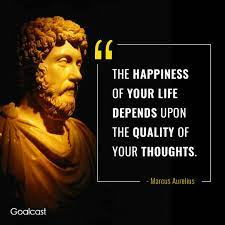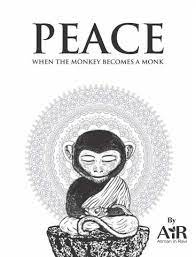Embodied
Enlightenment: The Convergence of Patanjali and St. John of the Cross
Within each of us resides a magnificent vessel, capable of radiating divine glory through the practice of meditation. Patanjali, in the sacred scriptures of Yoga Aphorisms, guides us to the third chapter, unveiling the profound nature of this glorious body. Echoing Patanjali's teachings, Vivekananda emphasizes the indestructible essence of this corporeal form, transcending the constraints of time. St. Paul's words further affirm the significance of the yogic body as a temple, housing the Holy Spirit bestowed upon us by God. In Corinthians, we are reminded to honor the divine presence in both our physical and spiritual realms.
The
profound connection between Patanjali and the illustrious Spanish mystic, St.
John of the Cross, becomes evident as we explore the parallel philosophies they
share. St. John's transformative journey through four nights aligns
harmoniously with Patanjali's concepts of Pratyahara, Dharana, Dhyana, and
Samadhi. These nights symbolize spiritual states of openness and surrender to
the grace of God, where the flickering lights of our human limitations are
extinguished. Patanjali's teachings beautifully articulate the divine
illumination that emerges during these transformative experiences. Pratyahara,
the withdrawal of the senses, finds resonance in St. John's belief in turning
inward, recognizing the boundless nature.
Embracing Life's Delights: It's Time to Start Enjoying
The melodic refrain of "Time-pass" from peanut vendors on long train journeys hints at the notion that by indulging in these treats, one can diminish the perceived passage of time.
Time
possesses a peculiar character - intangible and beyond the realms of our
senses. We cannot see, taste, hear, touch, or smell it, yet its existence is
profoundly felt. Einstein introduced time as the fourth dimension, urging us to
view space-time as a unified entity rather than separate entities. His Theory
of Relativity reveals the potential for time to stretch and compress.
In the Indian tradition, time, known as "kaal," is not perceived as a linear construct but rather as an endless cycle. Intriguingly, the word "kal" is used to denote both yesterday and tomorrow, embodying the cyclical nature of existence.
Ivan
Turgenev eloquently stated, "Time sometimes flies like a bird and
sometimes crawls like a worm." People often find happiness when they are
unaware of the swift or slow passage of time. This leads us to two distinct
perceptions of time: Chronos and Kairos. Kairos represents those moments when
time seems suspended, unfelt, as one engages in something worthwhile, exciting,
or in the company of interesting individuals. Chronos, on the other hand,
symbolizes sequential time, measured by clocks and calendars. In contrast,
Kairos evokes a boundaryless, open space sensation.
The
English language is replete with sayings related to time: "a stitch in
time saves nine," "time and tide wait for no one," "doing
time," "high time," "having a good time," "time
will tell," "tough times," and "when the time is
ripe." Our interactions with time are limited to actions such as killing
it, wasting it, enjoying it, or adding value to it. One thing is clear: we
cannot turn back the clock, and unused time cannot be refunded. The only time
within our grasp is the present moment.
Our
perception of time is intrinsically tied to age - in youth, we feel an
abundance of time at our disposal, while the arrival of old age starkly
highlights the limitations of time.
While
Benjamin Franklin associates time with money, a Chinese proverb emphasizes its
priceless nature: "An inch of time is an inch of gold, but you cannot buy
that inch of time with an inch of gold." The concept of "buying
time" is peculiar since no one appears to be selling it. Time belongs to
the list of intangible treasures that cannot be bought, including love, youth,
happiness, and peace of mind.
An
intriguing connection is drawn between the phrase "time flies" and
the flight of birds. Their migration patterns and distinctive songs at specific
intervals, marking the passage of time, inspired the makers of mechanical
clocks to incorporate birds, cuckoos, or roosters into their designs.
Biblical
verses proclaim, "To everything there is a season and a time to every
purpose under the heaven," teaching us that there is a designated time for
every aspect of life. Cherishing time is a sign of enlightenment, recognizing
that every second holds infinite value. Time, a precious resource, should not
be squandered on accumulating regrets, nurturing resentments, or fretting about
the past.
Time
is bestowed upon us in equal and generous measure, yet it is taken away
according to an unseen plan. Each of us possesses our own allotted time,
neither more nor less. The resounding message is to embrace life fully and make
time for activities that infuse us with a joyful sense of being, for as Hans
Christian Andersen reminds us, "There's plenty of time to be dead."
IF HE EXIST
I drive joy there was a doctor in Benaras who
spent 7 minutes in the morning and evening for mediation on God. Knowing this,
his colleagues and friends laughed at him. One day they argued that he was
wasting 7 precious minutes on something, which he had been misled into
believing. The doctor replied, “Well, if God does not exist, I agree that I am
wasting 7 minutes a day. But, if He exists? I am afraid you are wasting your
entire lifetime. I prefer to waste 7 minutes rather than a lifetime. Why should
you grudge me the 7minutes joy that I derive 4m.-
ILLUSTRATED REVIEW :7th heaven moment of the week in ipl Shubman gill no 7 got Orange cap MVP























